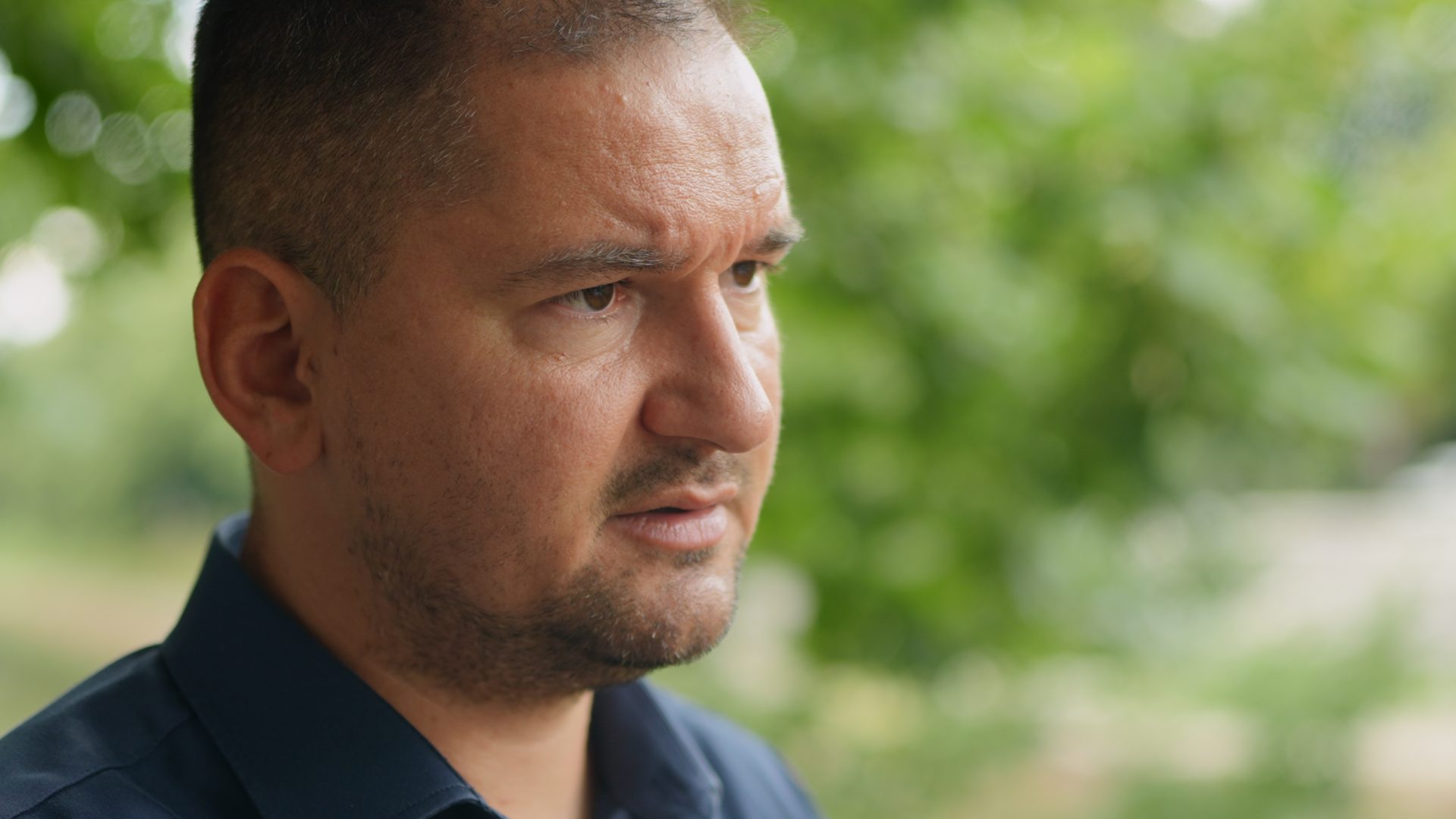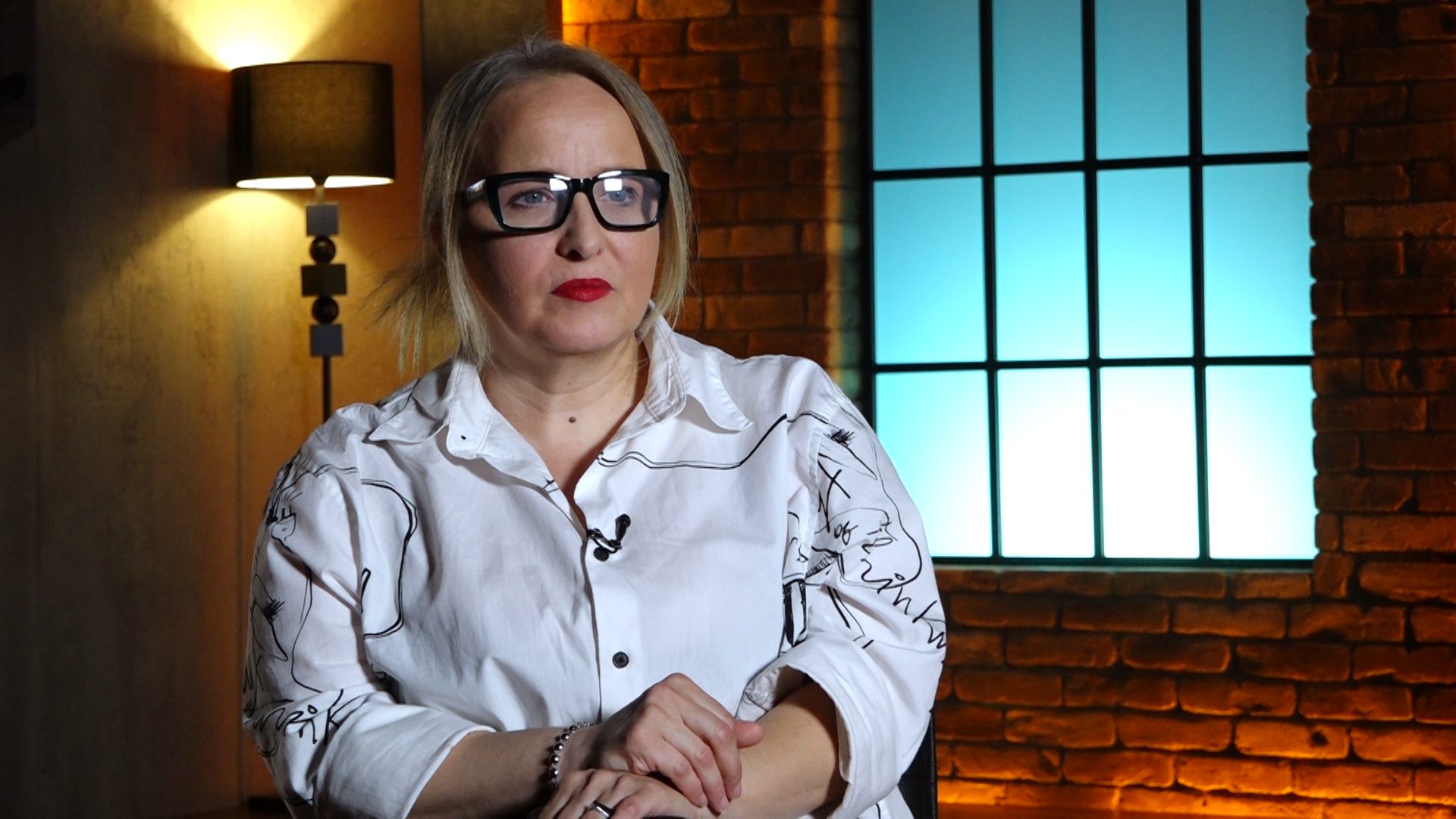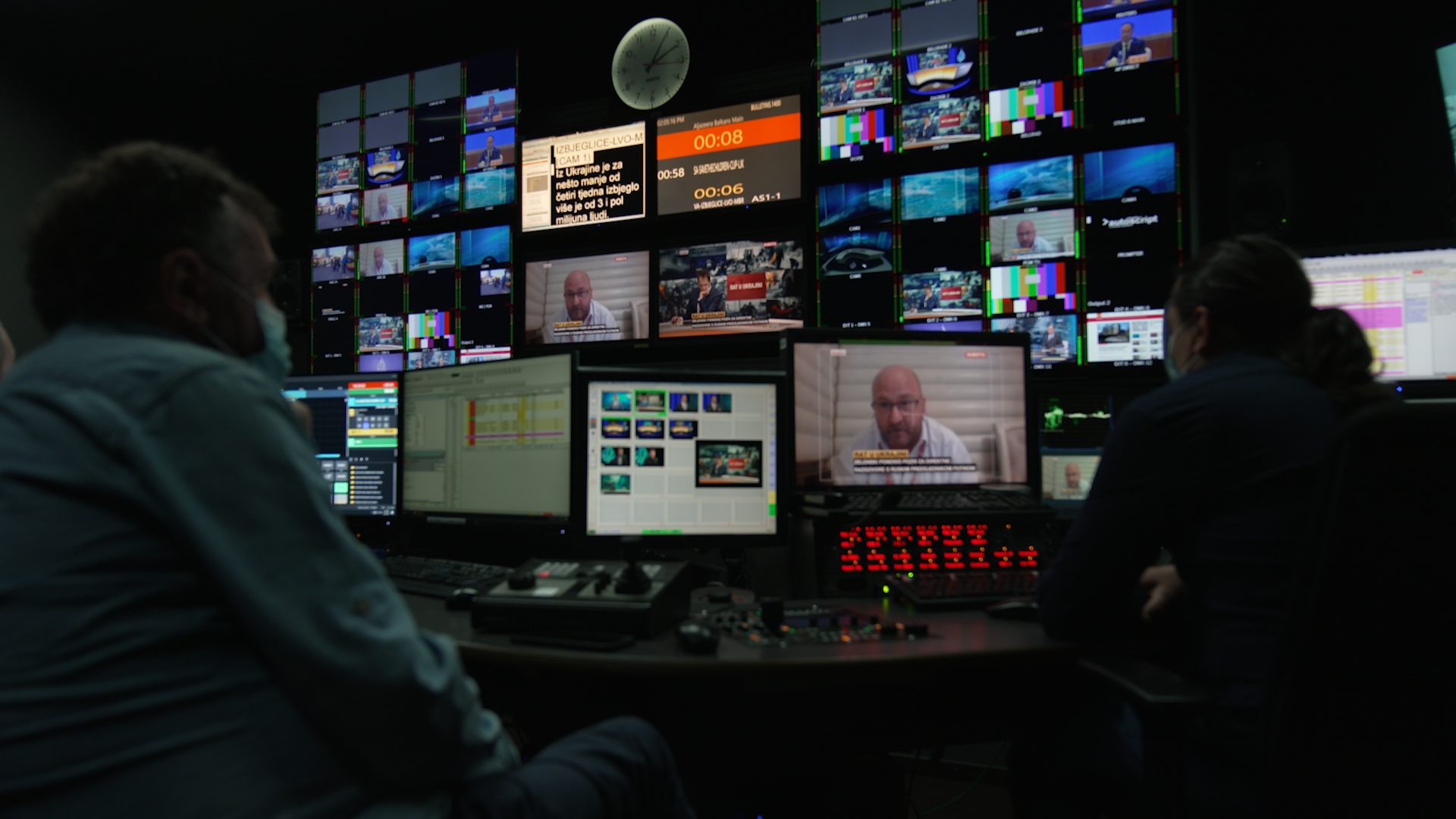This post is also available in: Bosnian
The year 2025 has left Harun Karcic worried. A foreign policy journalist with Al Jazeera Balkans, he was at the media outlet since it was established 14 years ago – and had an inside view of the television station being shut down.
Simultaneously, he also saw the closure of Voice of America and the debilitation of Radio Free Europe.
“As well as the fact that several hundred people from Bosnia and Herzegovina have lost their jobs, now with the closure of Al Jazeera Balkans, I’m afraid of where all of this is leading,” Karcic told Detektor magazine.
He understands well what the closure of the television station where he worked alongside about 200 other journalists and technical staff means for the journalistic community, but also for the public in Bosnia and Herzegovina.
Besides the closure of these media outlets, the new US administration has denied funding for a number of other smaller media outlets that are financed by donor money. Several American foundations operated in Bosnia and Herzegovina, with independent media receiving the most support from aid agency USAID.
“This has now been lost,” Karcic said.
This loss for the journalistic community and the public has become a space that can be exploited by media from the East, Karcic says. He already sees trends in Serbia that are spilling over into Bosnia and Herzegovina, as well as the influences of conservative media from Russia and China, which have a higher profile than ever.
Small independent media in the Republika Srpska that are dependent on donor support have been hit hardest by the departure of USAID, explains Sarajevo Mediacentar researcher Anida Sokol.
“A number of professionals will lose their jobs. Meanwhile the public won’t be getting [to know about] important and significant topics and important sources of information,” Sokol said.

Harun Karić. Photo: Detektor.ba
Al Jazeera is one of the few television stations that covers the events in Palestine live. Karcic believes that with the closure of the TV station, viewers in Bosnia and Herzegovina will lose the best access to information from Gaza.
“Palestine is a key issue for Al Jazeera. We pay a lot of attention to events in the Middle East, especially what’s happening in Gaza. At present, Al Jazeera is the only TV network reporting from Gaza,” he said.
Apart from reporting from Gaza, coverage from Serbia and Bosnia and Herzegovina could be significantly different too.
The model of political control over the media, as established in Serbia, is now spilling over into Bosnia and Herzegovina through TV channels and other media. Following the shutdown of Al Jazeera Balkans and changes within N1 TV, people who spoke to Detektor warned that media closer to the regime of Serbian President Aleksandar Vucic are becoming more dominant, which could considerably narrow the space for independent and critical reporting in Bosnia and Herzegovina and neighbouring countries.
Maja Sever, president of the European Federation of Journalists, says that the arrival of media associated with Vucic cannot be a good sign and offers a poor outlook for media in Bosnia and Herzegovina.
“This is particularly because no system is being developed in parallel that would protect and strengthen real, independent journalism in Bosnia and Herzegovina. Statesmen cut from the same cloth are happily adopting [Hungarian leader Viktor] Orban’s model of enslaving the media,” she explained.
Marija Arnautovic, a former editor at the Sarajevo office of Radio Free Europe, sees the arrival in Bosnia and Herzegovina of media under Vucic’s control as a political ploy by the Serbian authorities.
“This started in Serbia at least ten years ago. You have absolute control over all media,” Arnautovic, now editor of Television E in Podgorica, explains.
“When we in the media community, discuss this, we say that Vucic has managed to do with the media what not even Slobodan Milosevic was able to accomplish in the 1990s. Aleksandar Vucic is the absolutely ruler of almost all media [in Serbia],” she says.

Marija Arnautović. Photo: Detektor.ba
The media scene reflects what is happening in society and in politics, says the news editor of Nova S TV in Belgrade, Slobodan Georgiev.
“Look what he [Vucic] does. Wherever there is N1 and Nova, he sets up his own system. But we know that, for Vucic, the media is really just a propaganda tool, it’s the way he governs society, and I think that he’s trying to do the same in Bosnia and Montenegro and Croatia,” says Georgiev.
Journalists and editors believe that the space left by the US by withdrawing its funding will be filled by other countries that do not nurture a democratic relationship with the media.
Karcic notes that Xinhua, a news agency under the direct control of the Chinese Communist Party, as well as Russia Today, a pro-regime media outlet under the control of the Kremlin, operate in Bosnia and Herzegovina and the wider Balkans.
“They produce a lot of material every day, which is distributed for free to TV stations throughout the Western Balkans. Bosnian TV stations and websites that lack sufficient own funds to fill up their programming will gladly pick up the articles and video clips and broadcast them, very often unaware that it is actually Chinese or Russian propaganda,” Karcic says.
“Here we have Russian TV stations, which are directly financed by the Kremlin, spreading anti-NATO propaganda, anti-EU propaganda, glorifying the Russian war machinery and glorifying Vladimir Putin, while offering people in Bosnia and Herzegovina and elsewhere in the Balkans a relationship with Russia as an alternative to joining NATO and the European Union,” he explains.
With the shutdown of media outlets and funding halts, a vacuum has been created that will sooner or later be filled by others.
“There are fewer and fewer liberal European channels present here,” Karcic says.
As the US retreats, questions are increasingly being raised about whether the European Union will increase its support.
“It is clear that high-quality journalism is the first to be targeted. We must close ranks somehow and speak loudly and clearly about what’s being done – and demand, at least here in Europe, that a framework to protect journalism is constructed,” Sever told Detektor.



